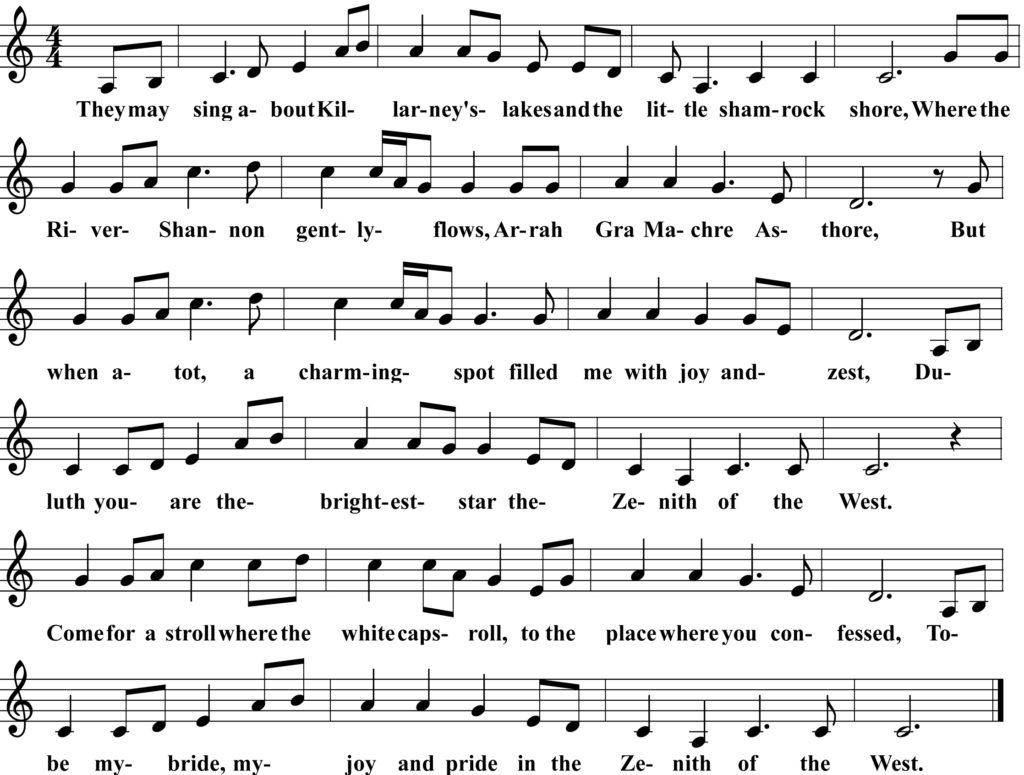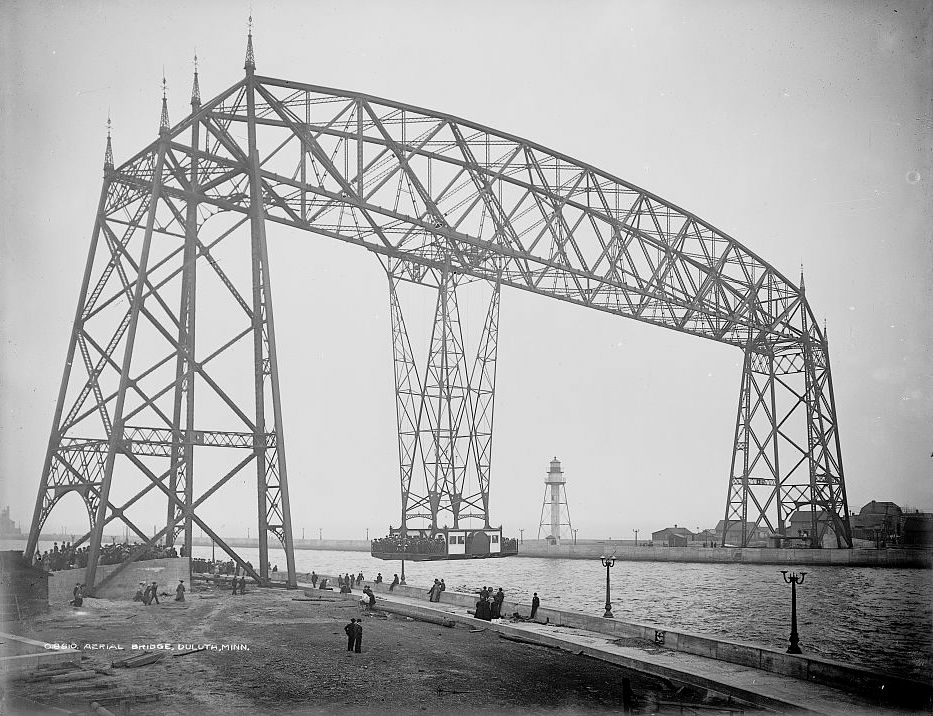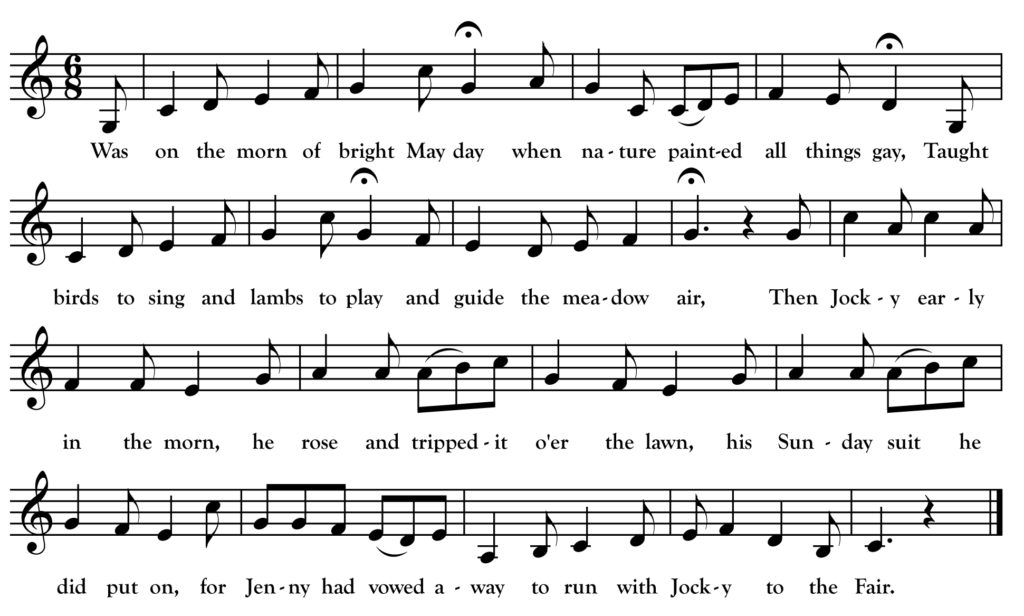The Zenith of the West

They may sing about Killarney’s lakes and the little shamrock shore,
Where the River Shannon gently flows, Arrah Gra Machre Asthore,
But when a tot, a charming spot filled me with joy and zest,
Duluth you are the brightest star, the Zenith of the West.
CHORUS:
Come for a stroll where the white caps roll, to the place where you confessed
To be my bride, my joy and pride in the Zenith of the West.
They may sing of bonnie Scotland and the heather in the glen,
Let Harry Lauder sing in praise of the Highlands and his kin,
But let me dream of that beauty stream and the scenes that I love best,
Where Lester flows in sweet repose through the Zenith of the West.
So let them sing of other lands but I will sing of mine,
As I go sailing “’Round the Horn” while the silvery moon doth shine,
O take me back to Fond du Lac where my true love I caressed,
I loved her there for she’s as fair as the Zenith of the West.
Come out with me for a “joy ride,” come for a row or sail,
Then after dark see Lester Park, see the aerial without fail,
Take the “Incline” for a sight sublime when you reach the mountain crest,
The electric rays will you amaze in the Zenith of the West.
Though I have wandered far away in other lands so fair,
Dear old Duluth I ne’er forgot none could with you compare,
In future days I’ll sing your praise for you have stood the test,
In 1916 we’ll crown her queen the Zenith of the West.
The nights are cool in summer time each day there comes a breeze,
So balmy and refreshing from the Queen of unsalted seas,
Duluth for health, Duluth for wealth, and when I’m laid to rest,
Just let me sleep near Superior’s deep in the Zenith of the West.
We have a third song this month from the prolific pen of James Somers who spent a sizeable portion of his life in Duluth and composed this song in praise of that place. Somers opens his 1913 book Jim’s Western Gems with a Foreword in which he lists “Zenith of the West” as one of his several composed “songs with their music” that he hoped to publish “in the near future” (seemingly, with melodic transcriptions added?). I have yet to find evidence that Somers did publish a song-focused book but, luckily, the words for “Zenith of the West” appear in Jim’s Western Gems. I have set them here to my adaptation of the tune used by Maine singer Carrie Grover for “The Lily of the West.”

Duluth’s nickname has long been “The Zenith City.” Beautiful Lester Park is on the east side of Duluth where the Lester River enters Lake Superior. The “aerial” must be Duluth’s famous aerial bridge connecting mainland Duluth to Minnesota Point. At the time Somers published this song (1913) the bridge was an “aerial transfer bridge” where cars and people rode on a suspended gondola across the span. The reference to 1916 (three years in the future when the song was published) is intriguing. It is possible it could be referencing the upcoming 44th annual regatta of the National Association of Amateur Oarsmen which fascinated Duluthians in 1916 but it is hard to imagine that event was already hyped so far in advance. Maybe someone with more Duluth history knowledge than me will have a guess!
I have always loved Duluth and this is a wonderful text full of nods to other Irish songs and conventions of English language ballad-making!


